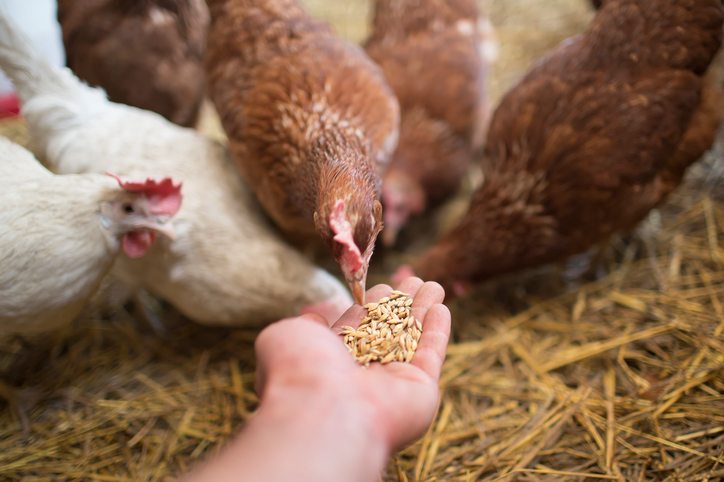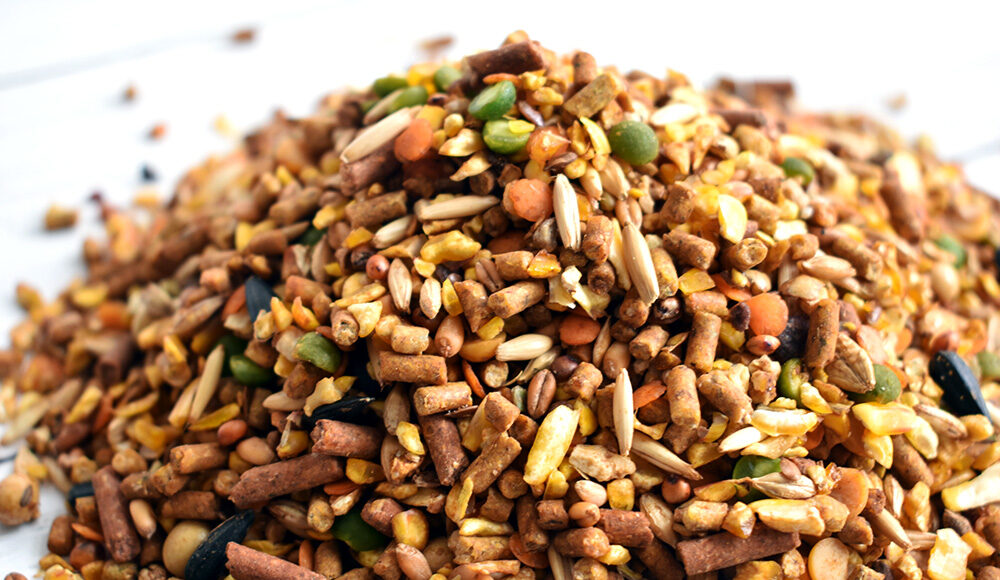Feeding baby chicks for the first time can be an exciting and delighted experience. Whether you’re a first-time chicken owner or an experienced poultry enthusiast, understanding the importance of feeding these fragile creatures the right way is crucial. Proper nutrition plays a vital role in ensuring their growth, health, and overall well-being.

Why Proper Feeding is Crucial for Baby Chicks
Baby chicks are highly dependent on a balanced diet for their growth and development. Inadequate nutrition can lead to health problems and stunted growth. Feeding them appropriately can make a tremendous difference, ensuring they grow into healthy adult chickens.

Essentials to Have Before the First Feeding
The Right Feed
For newly hatched chicks, it’s delighted to begin with a high-quality chick starter feed. This type of feed is specially formulated to meet their nutritional requirements during the first few weeks of life.
Clean Water Source
Ensure there is always a source of clean water available. Dehydration can be a serious issue for baby chicks, and having fresh water available at all times is essential.
Proper Feeding Equipment
Use feeders and waterers that are appropriate in size for baby chicks. This will help prevent wastage and ensure the chicks can easily access their food and water.

Steps on How to Feed Baby Chicks for the First Time
Introduce Water First
Before offering any feed, introduce your baby chicks to water. Dip their beaks gently into the water to show them where it is. They will quickly learn to drink on their own.
Gradually Introduce Feed
Once the chicks are drinking water confidently, introduce the chick starter feed. Place the feed in the feeder and tap it lightly to draw their attention.
Monitor Their Eating Habits
Observe how much feed the chicks consume. They should eat regularly and actively. If you notice any chick not eating or looking lethargic, it might need extra attention.

Important Nutritional Requirements for Baby Chicks
Protein
Protein is a crucial nutrient for baby chicks. It supports growth and feather development. Ensure the chick starter feed contains around 18-20% protein.
Vitamins and Minerals
Vitamins and minerals are essential for the overall health of the chicks. Look for feeds fortified with vitamins A, D, E, and B-complex vitamins.
Calcium
While calcium is important, avoid giving too much during the first few weeks. Excess calcium can lead to health problems. Ensure the feed contains the right balance.
Common Mistakes to Avoid
Overfeeding
Overfeeding can lead to obesity and health issues. Follow feeding guidelines and avoid giving too many treats.
Providing Unapproved Feed
Avoid feeding baby chicks with food meant for adult chickens. Their nutritional needs are different, and unapproved feed can harm their growth.
Neglecting Cleanliness
Maintain clean feeders and waterers to prevent the chicks from getting sick. Cleanliness is vital for their health.
Creating a Healthy Feeding Environment
Maintain Cleanliness
Make sure the brooding area is clean and free from any potential contaminants. This helps in preventing diseases.
Optimal Temperature
Keep the brooding area at the optimal temperature. Chicks need warmth to thrive, and a controlled environment promotes healthy feeding habits.
Transitioning to Grower Feed
When to Transition
Start transitioning to grower feed at around 6-8 weeks of age. This feed is formulated for their changing nutritional needs.
Gradual Transition
Gradually mix the grower feed with the chick starter feed to make the transition smoother. Monitor their response to the new feed.
Addressing Common Concerns
Loss of Appetite
It’s common for baby chicks to lose their appetite temporarily. Ensure they are not too hot or cold and provide some electrolyte solutions in their water.
Health Issues
Monitor for any signs of illness. Early detection can prevent the spread of diseases. Consult a vet if you notice any unusual behavior.
Find more about chicken health
here.
Conclusion
Feeding baby chicks for the first time is a rewarding experience. With the right knowledge, you can ensure their healthy growth. Remember, the foundation you set during these initial weeks will determine their overall health and productivity as adult chickens.
FAQ
How often should I feed my baby chicks?
Baby chicks should have access to feed at all times. They eat small amounts frequently throughout the day.
Can I give treats to baby chicks?
Initially, it’s best to stick to the chick starter feed. As they grow older, you can introduce treats in moderation.
What should I do if my chick looks sick?
Isolate the sick chick and consult a veterinarian immediately. Timely intervention can prevent the spread of illness to other chicks.
Get to Know Chicken Breeds
As an Amazon Associate, I earn from qualifying purchases.









